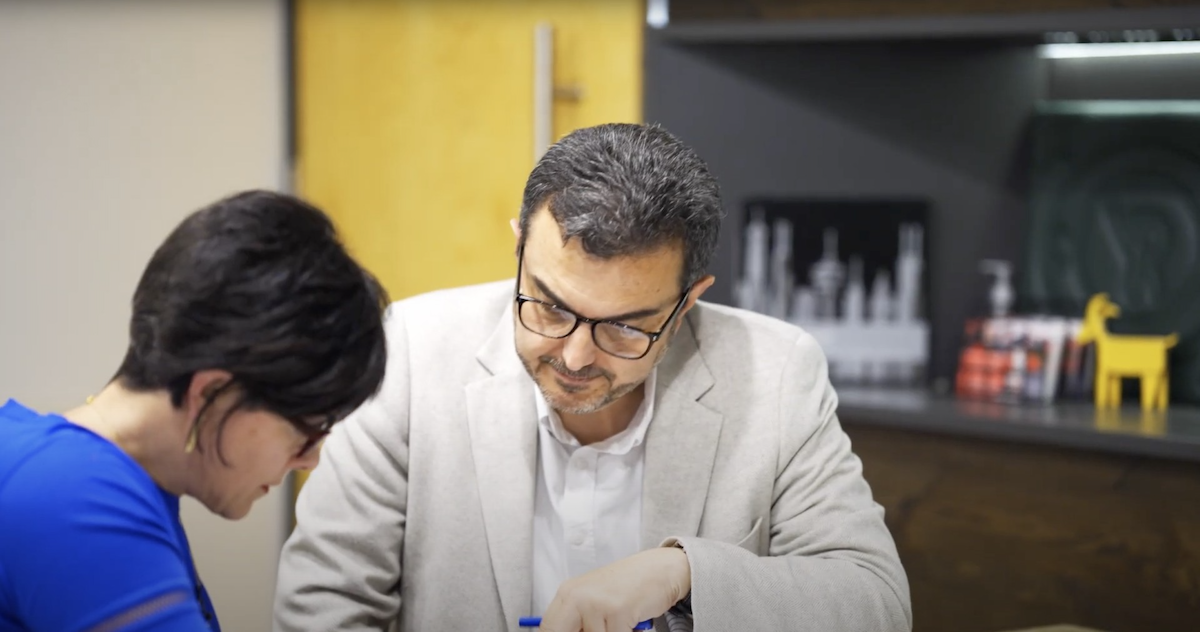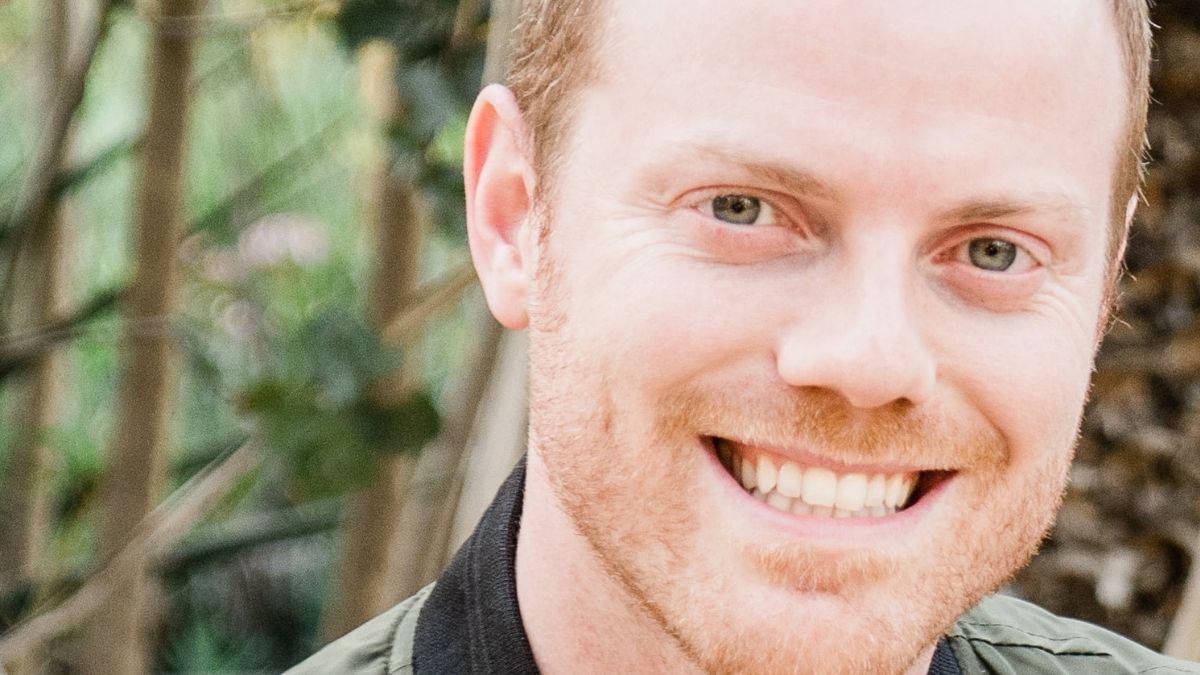Why Your Reputation Is the Only Asset That Truly Matters
When people hear the term "personal brand," their minds often jump to a very specific place. They picture curated Instagram feeds, slick logos, a certain colour palette, and the relentless self-promotion of the "influencer" era. They see it as a project of external construction—a mask to be designed and worn for the public.
Let me be perfectly clear: That is not a personal brand. That is a personal billboard. And in a world of endless noise, billboards are very easy to ignore.
After more than four decades in business, from the structured corporate world of IBM and Apple to the scrappy, all-in beginnings of RedBalloon in my living room, from the intense scrutiny of the Shark Tank to building a community of millions on LinkedIn, I have learned a fundamental truth.
Your personal brand is not what you say you are. It is what other people believe you are. It is the sum of every interaction, every decision, every promise kept, and every piece of value you create. It is, as Jeff Bezos famously said, "what people say about you when you're not in the room."
It is not a brand. It is a reputation. And your reputation is the single most valuable, non-negotiable, and enduring asset you will ever build.
This evolution—from thinking about branding as a superficial project to understanding it as the deep, daily work of building a reputation—is the most important mindset shift any leader can make. It's a topic so critical to sustainable success that I dedicated my latest podcast episode to exploring what it truly means to go "Beyond the Personal Brand."
Today, I want to give you my definitive guide to building a reputation that not only opens doors but creates a legacy of trust and impact.
The Three Pillars of a Rock-Solid Reputation
A powerful reputation is not built on a single element. It is a sturdy, three-legged stool. If any one of these legs is weak, the entire structure will wobble and collapse under pressure.
Pillar 1: Competence (The "What") - You Must Be Excellent at Something
This is the bedrock. It is the non-negotiable price of entry. Before you can have a reputation, you must have substance. You must be demonstrably, undeniably good at what you do.
In my early career, I didn't focus on building a "brand." I focused on being the best marketer I could be. I soaked up knowledge at the University of Melbourne, I learned from the best at IBM and Apple, I honed my craft. When I started my first marketing consultancy, and later RedBalloon, my reputation was built on my proven ability to deliver results.
Your expertise is the foundation upon which everything else is built. You cannot build a powerful reputation on a foundation of mediocrity. People must be able to trust in your competence. This means a commitment to lifelong learning, to honing your craft, and to delivering excellence not just sometimes, but consistently.
Pillar 2: Character (The "How") - You Must Be a Person of Integrity
This is the leg of the stool that so many people neglect, and it is the one that ultimately determines the strength of your reputation. You can be the most competent person in the world, but if people don't trust your character, your reputation is worthless.
Character is revealed in your actions, especially when things are difficult.
- Do you do what you say you are going to do?
- Do you treat people with respect, regardless of their status?
- Do you take responsibility when you make a mistake, or do you blame others?
- Do you operate with transparency and honesty?
On Shark Tank, I was investing in the founder as much as I was investing in the business. I was making a rapid assessment of character. I was looking for grit, resilience, coachability, and integrity. Why? Because I knew that when the inevitable challenges arose, it would be their character, not just their competence, that would see them through.
Your character is the true north of your reputation. It's the answer to the question, "Can I trust you?"
Pillar 3: Contribution (The "Why") - You Must Be Generous
This is the pillar that elevates a good reputation to a great one. This is what takes you "beyond the brand." It is the shift from a "me-focused" worldview to a "we-focused" one.
A reputation built only on competence and character is solid, but it can be self-contained. A reputation built on contribution becomes a magnet. This is about generously sharing what you know, helping others succeed, and adding value to your community without any expectation of immediate return.
I am often asked how I built a following of millions on LinkedIn. The answer is simple: for over a decade, I have consistently shown up and shared what I have learned. I’ve shared my wins, my failures, my insights, and my observations. My goal was never to accumulate followers; it was to contribute to the business community. The following was a byproduct of a consistent commitment to generosity.
When you focus on contribution, you shift from being a "thought leader" to being a "thought-giver." You build a reputation not just for being smart, but for being helpful. This is what creates deep, lasting loyalty and turns an audience into a true community.
A Deeper Conversation on Building Your Legacy
This evolution from a self-focused brand to a contribution-focused reputation is a journey. It involves introspection, conscious choices, and a long-term perspective. It's a topic I explore in great depth on the podcast, sharing personal stories about how my own understanding of this has evolved over my career. We dive into the nuances of how to build each of these three pillars in a practical, authentic way.
How to Actively Cultivate Your Reputation (The Daily Practice)
Building a great reputation is not a one-off project; it is a daily practice. It is the sum of thousands of small, consistent actions.
- Be Consistent, Online and Off: The person you are in a boardroom meeting must be the same person you are in your LinkedIn posts and the same person you are when you're speaking to a junior employee. Authenticity is the absence of fragmentation. If there is a gap between your "online brand" and your real-world character, people will sense it, and trust will be eroded.
- Listen More Than You Talk: The best way to understand how to contribute is to first understand what people need. Pay attention to the questions your customers, your team, and your community are asking. Your most valuable content and your most helpful actions will come from a place of deep listening.
- Embrace Generosity as a Strategy: Share your best ideas freely. When you meet someone, think "How can I help them?" before you think "What can they do for me?". Make introductions. Promote the work of others. This "give first" mentality is the fastest path to building a network of people who trust you and want to see you succeed.
- Own Your Story (The Good and the Bad): Don't just share the polished success stories. Share the struggles, the lessons learned from failure, the moments of doubt. Vulnerability is a superpower. It shows that you are human, it makes you relatable, and it builds a much deeper level of trust than a curated feed of endless perfection ever could. My story of starting RedBalloon isn't just about its success; it's about the struggle and the risk, and that's what resonates with people.
Your Reputation is Your Legacy in the Making
Let's abandon the term "personal brand." It's tired, it's superficial, and it encourages the wrong behaviour. Let's start talking about what really matters: your reputation.
Your reputation is not built in a day. It is earned, moment by moment, interaction by interaction, promise by promise. It is the quiet, cumulative result of being excellent at what you do, being a person of unwavering integrity, and being generous with your knowledge and your time.
It is the one asset that no market crash can devalue, no competitor can steal, and no algorithm can diminish. It is the foundation of your leadership, the core of your influence, and the living legacy you are building every single day.
Don't build a brand. Build a reputation so solid that it speaks for itself.
Frequently Asked Questions on Beyond the Personal Brand
1. What does it mean for a founder to move 'Beyond the Personal Brand' to build a lasting enterprise?
Moving 'Beyond the Personal Brand' means the founder has successfully transitioned the business's core value and trust from their individual presence (their face and name) to the company's systems, purpose, and institutional expertise. This is the ultimate act of maturity, ensuring the business is scalable, sellable, and sustainable, rather than being entirely dependent on the founder's daily manual effort and celebrity.
2. What is the fundamental risk to a business that relies too heavily on the founder's personal brand?
The fundamental risk is operational dependency and lack of saleability. If the founder's presence is the only thing driving sales and trust, the business cannot scale efficiently or operate profitably without them. Furthermore, the business is extremely difficult to sell because the core asset (the founder) walks out the door. The business's value becomes inherently constrained by the founder's time and energy.
3. How can a founder strategically transfer 'trust' from their personal brand to the corporate brand?
A founder strategically transfers 'trust' by embedding their personal credibility (their E-E-A-T) into the company's systems, processes, and content. This involves rigorous documentation of expertise, creating a brand narrative focused on the company's purpose, and publicly empowering the leadership team and employees to become experts. The goal is to make the corporate brand the reliable, consistent, and scalable vehicle for the founder's original vision and values.
4. What role does the Non-Executive Director (NED) play in advising a founder on this transition?
The NED plays a vital role by providing objective, external pressure to execute this transition. They hold the founder accountable for implementing the necessary governance and management structures that ensure the business can function independently. They act as the custodian of the business's long-term health, ensuring that the founder's ego doesn't prevent the adoption of scalable systems and professional management.
5. What practical steps should a founder take to ensure the corporate brand has a durable, independent life?
Practical steps include: 1. Documenting All Core Processes: Shifting knowledge from the founder's head to the company's systems. 2. Empowering the Leadership Team: Giving the CEO and senior managers public authority and accountability. 3. Creating System-Generated Content: Ensuring the brand's expertise is delivered through repeatable content and not just the founder's posts. 4. Aligning Stakeholders: Ensuring investors and the board value the system more than the individual.






